Written by SENsational Tutors Ltd.
How to get through the corona virus with your child with SEN – how to help them develop a growth mindset

Anxiety about the coronavirus is certainly increasing amongst both adults and children. As of 18th March, children with special educational needs (SEN) including those with EHCPs may still have access to education (Gov.uk), although unfortunately many children with SEN may be overlooked – especially if they don’t have an EHCP.
The growth mindset principle and homeschooling your child with SEN
Many parents with children with SEN are therefore preparing to home-school their children. This adds to the stress and worry. Parents worry about finding enough resources and games, and being able to keep their children occupied and entertained for a sustained amount of time.
Understanding the growth mindset as a parent may help you realise that you are certainly not alone – and that you should not give-up. You are likely to NOT be a trained and qualified teacher – but you certainly have your own strengths and areas of brilliance. You will make mistakes, but that’s OK.
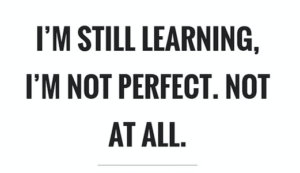
Children with special educational needs (SEN) can benefit from using and understanding growth mindset techniques when they are tweaked to suit their individual.
Certainly, home-schooling doesn’t have to be only about teaching reading, writing and Maths. It can involve fantastic transferrable skills which can support your child for life – e.g. cooking, playing games, helping each other, etc., so why not incorporate teaching the growth mindset into your daily home-schooling schedule?
Here are some ideas about how to develop your child with SEN’s understanding of the growth mindset principle at home:
What does growth mindset mean?
A growth mindset occurs when a child – or indeed an adult – understands that his or her brain is malleable and consequently he or she believes it’s possible to develop their intelligence.
On the other hand, someone with a fixed mindset will believe he or she is born with particular set of strengths and weaknesses and that changing his or her level of intelligence isn’t possible.
Growth mindset as a term was first used 30 years ago by Stanford psychologist Carol Dweck, who studied students’ attitudes about failure.
She noticed that while some students bounced back when faced with a setback, others seemed to hold on to these experiences which negatively affected their confidence, and moreover, their approach to learning and progressing.
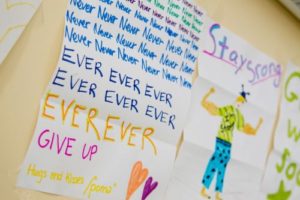
How can a child with SEN develop a fixed mindset?
For many children – whether they have SEN (Special Educational Needs) or not – when they hear the words ‘no’, ‘can’t’, ‘wrong’ or ‘not good enough’ in a learning or school-orientated environment they start to believe that they are not able to do something or worry about trying and making mistakes. In this way, their ability to learn becomes limited because they believe they can’t do it – so they stop trying.
In this way, children will internalise the voices of the adults around them and develop a fixed mindset based on what they’ve heard.
For some children with SEN, when they are trying to learn, putting in additional effort and still finding that they’re confused or struggling with a task – day in, day out – these experiences can be incredibly disheartening.
If you can keep this in mind, while trying to gradually shift your child’s perspective on their own capabilities – from a fixed to a growth mindset – then any emotional fallout your child may be feeling is likely to be lessened.

Tips to nurture a growth mindset
Thomas A. Edison once said: ‘I have not failed. I’ve just found 10,000 ways that won’t work.’
Tip 1: Give permission to stumble
As adults, it’s our job to help facilitate a shift from this fixed mindset to a growth mindset in our children, helping them to look at fresh challenges or new experiences through a different lens and celebrate the process rather than focus on the result.
When we consistently emphasise this idea, we can create curious, inquisitive and resilient learners who can embrace change and welcome a challenge.
The message to our children is that: ‘It’s OK and a natural part of life to stumble along the way.’ Not getting something right or doing a task well first time doesn’t have to be painful or mean that there’s anything wrong with a person.
Experiment with ways to create a learning atmosphere for your child that feels safe for him or her to make mistakes, go off-piste with their thinking, and not quite get it right first-time round.
Keep reassuring them that ‘This is OK!’ Encourage your child to keep trying and explain that as long as he or she is willing to offer their effort, enthusiasm and ideas, you’ll be there to listen.
Tip 2: Use the power of YET!
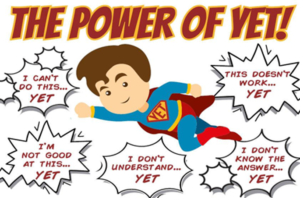
The fixed mindset phrase, ‘I can’t do it,’ can be easily transformed into a growth mantra, just by adding on one small word – ‘yet.’
Encourage your child to adopt this phrase every time they feel like they’ve not achieved something that they’ve attempted. ‘I can’t do it yet,’ brings a totally different outlook for a child because it offers hope and reassures them this is a process that everyone experiences.
Tip 3: Adopt positive self-talk
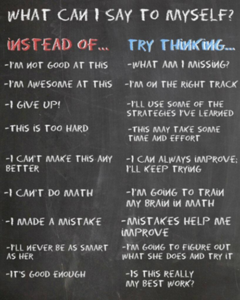
You can also encourage your child to introduce other small, positive changes in the language they use when they’re learning.
By using these small but powerful changes, your child can be guided towards thinking about their capabilities in a more positive light, shifting their internal dialogue to one that’s closer to a growth mindset.
Big Life Journal have created a great guide for parents below, that offers some practical suggestions you can try to guide your child to take the first steps to achieving a growth mindset.
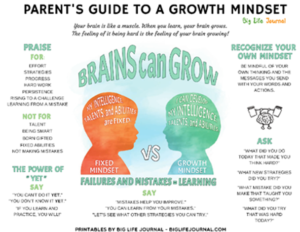
More benefits of a growth mindset
There are obvious benefits of having a growth mindset for a child in a learning environment.
But did you know that it’s thought that this perspective can also potentially help in the following social or health-related aspects?
- Handling a new, unfamiliar situation or making the transition from one year group (or school) to another;
- Anger management and mental wellbeing – there is evidence that children with a growth mindset can often experience anger in healthier ways, be more confident and can be better equipped to cope with anxiety.
Have a go at these easy tips to help your child with SEN start believing that way ahead in life is not always a straight road to the get to your destination.
Keep on sharing the simple fact that it’s not just okay to make mistakes – more often than not, it’s actually how we learn and grow into healthy human beings.
Resources: For further information about the concept of a growth mindset and its importance, especially for children with special educational needs (from Lisa Geng Author and President of The Cherab Foundation) click here.
Still need some extra professional help to boost your child’s learning and shift their mindset?
SENsational Tutors offer bespoke ONLINE tutoring sessions to children with SEN.
Search for a tutor that’s just right for you and your individual child HERE or contact us HERE.

Sources:
https://www.speechandlanguagekids.com/teach-sequencing-skills-children/
https://www.pre-kpages.com/sequencing-activities-for-preschoolers/
https://study.com/academy/popular/sequencing-activities-for-preschoolers.html
https://www.topmarks.co.uk/maths-games/7-11-years/ordering-and-sequencing-numbers




